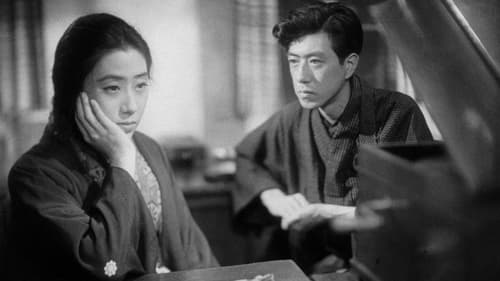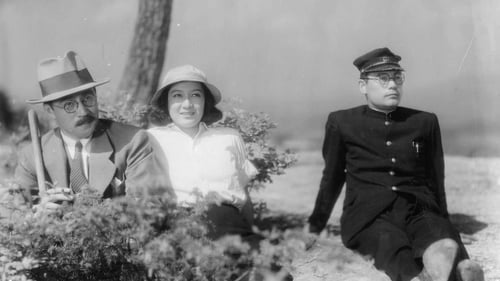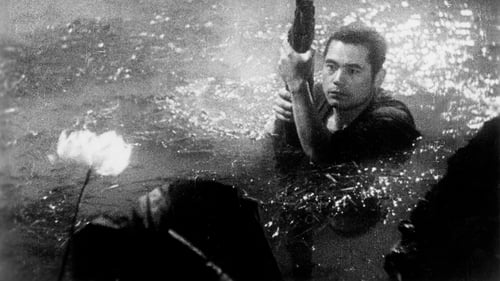
Producer
Three and a half years after Japan was bombed, the tax authorities organized the T-Men. Nango is in love with a girl called Mibu, and the two are against the T-Men organization. Mibu whats to kill all of the T-Men one-by-one.

Producer
Sumako, a country girl, becomes a great actress with the help of Hogetsu,a scholar who brought some of European realism to the Japan's stage. The relationship leads to the end of his marriage and the breakup of his Arts Society. This is another version of Kenji Mizoguchi's film "The Love of Sumako the Actress" ("Joyû Sumako no koi"), from the same year. Both tells the story of the famous actress Sumako Mitsui (1886-1919), considered the first great modern theater actress in Japan. Mizoguchi himself is said to have preferred Kinugasa's version.

Producer
Omnibus of love stories from 1947 directed by famous directors, featuring big stars.

Producer
쇼와 8년(1933년), 교토대학 학생 유키에는 법학부 야기하라 교수의 딸로 부족함 없는 생활을 누리고 있다. 아버지의 제자 중 신중하고 상식을 중시하는 이토카와와 정의를 위해 투쟁하고자 하는 노게. 유키에는 대조적인 두 사람 사이에서 흔들린다. 그러던 중 자유사상을 이유로 야기하라 교수가 탄압을 받게 되고, 노게는 좌익 운동을 하다 수감된다. 수년 후 검사가 된 이토카와의 청혼을 거절하고, 유키에는 노게를 찾아가 동거를 시작한다. 노게는 반전 운동을 하다 스파이 혐의로 체포되고, 감옥에서 고문을 당해 죽고 만다. 유키에는 노게의 유골을 안고 그의 고향으로 향한다.

Writer
쇼와 8년(1933년), 교토대학 학생 유키에는 법학부 야기하라 교수의 딸로 부족함 없는 생활을 누리고 있다. 아버지의 제자 중 신중하고 상식을 중시하는 이토카와와 정의를 위해 투쟁하고자 하는 노게. 유키에는 대조적인 두 사람 사이에서 흔들린다. 그러던 중 자유사상을 이유로 야기하라 교수가 탄압을 받게 되고, 노게는 좌익 운동을 하다 수감된다. 수년 후 검사가 된 이토카와의 청혼을 거절하고, 유키에는 노게를 찾아가 동거를 시작한다. 노게는 반전 운동을 하다 스파이 혐의로 체포되고, 감옥에서 고문을 당해 죽고 만다. 유키에는 노게의 유골을 안고 그의 고향으로 향한다.

Executive Producer
Two sisters, one a dancer and the other a script supervisor at a big movie studio, become embroiled in union activities when a strike is called in sympathy with striking railroad workers, one of whom boards with the sisters and their parents. The girls' father argues with them about their strike, but finds his views changing when he himself loses his job.

Producer
The story of Sanshiro, a strong stubborn youth, who travels into the city in order to learn Jujutsu. However, upon his arrival he discovers a new form of self-defence: Judo. The main character is based on Shiro Saigo, a legendary judoka.

Writer
This movie is presumed to be lost.

Executive Producer
Documentary of an Imperial Japanese Army regiment's advance from Shanghai to Wuhan in 1938. This film was shelved before submission to Home Ministry censors amid rumors that Fumio was a Communist.

Director
Propaganda documentary about the fall of Nanking. Considered for a long time as a lost film, it was discovered in Beijing, China, in the year 1995.

Producer
Propaganda documentary about the fall of Nanking. Considered for a long time as a lost film, it was discovered in Beijing, China, in the year 1995.

Screenplay
Based on the comic by Yutaka Asou

Screenplay
The film generally regarded as Japan’s first true musical was also the first film made entirely in-house by the pioneering studio P.C.L., a company founded specifically to take advantage of emergent sound technology. P.C.L. worked in collaboration with a brewer’s firm, Dai Nihon Biru, who met the production costs of the film in full, and whose products are featured in the film in an example of the sophisticated and modern merchandising typical of the studio’s early work. The film is partially set in a beer hall, and its story concerns a beer seller at a train station and her relationship with a music student trying to create a hit song. Director Sotoji Kimura was to become a company stalwart, making such films as Ino and Mon, while actress Sachiko Chiba would emerge the studio’s first real star, appearing in such films as Wife Be Like a Rose.

Director
After his Tokyo farewell ceremony, Yamamoto's ashes were sent to Kyoto on March 9. Many friends and citizens gathered at his home in Uji. On the 15th a worker-farmer funeral was held at the Sanjo YMCA. Prokino's Kyoto Branch shot these five days of activities. The long line of cars is filled with taxis, whose drivers deeply admired Yamamoto. The Watanabe in the title refers to the head of the Communist Party of Japan. Watanabe was returning to Japan from Taiwan when he was stopped by authorities. He committed suicide in their custody. Yamamoto and Watanabe were mourned together.










